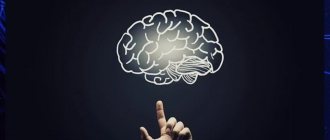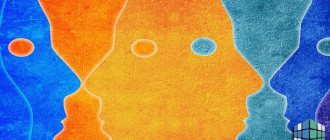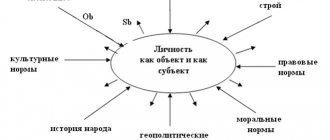Recently, psychological science has been developing at a rapid pace, due to a large number of theoretical and practical problems. The main branches of psychology are one of the most progressive scientific areas, united by a single subject of study, the psyche. Therefore, they are classified depending on whose psyche is being studied, what aspects are being considered and under what conditions this happens.
Foundation of Science
The general psychology of the discipline as a whole is based on simple questions that stand in the way of this science, their study, theoretical principles, methods of cognition, patterns and subsequent development in real human life.
The most important issue is the psyche. In its study, they try to give answers to questions such as: what is it, the psyche? Functionality, schematic? What laws does it obey in ontogenesis and phylogenesis? Stages of development, criteria? The relationship between the brain and the psyche? How does the innate psyche differ from the acquired one? Sociality and biology? By what principles can we distinguish normal development from abnormal development?
Considering fundamental questions is not the only thing science studies.
In addition, she pays attention to procedural specifics, its properties and situations. The main subject of study is a person, that is, his personality, activities, communication with other people, knowledge - these questions are submitted to practical and theoretical study
In some cases, these issues are isolated as a separate mental phenomenon, human activity, and cognitive processes.
Typically, general questions are based around the more personal branch of psychology related to self-knowledge. For example, phylogeny examines mental problems in comparison with animal psychology, comparing the development of the human psyche and the animal.
Ontogenetic development directly depends on age, psychological development - the balance between the brain and the mental system (in psychophysiology, neuropsychology); deviations in formation - special psychology examines what constant criteria the connection between the individual and society takes place; the creation and subsequent re-creation of groups - social psychology, a function of work activity; personal development of a person; the rule of education and training and pedagogical features of actions (teacher discipline).
Definition of psychology as a science
Psychological sciences give a person the opportunity to know the people around him and himself. Understanding others, in turn, provides recognition in society, which is important for the quality of life.
What does psychology study? The modern discipline is aimed at considering a number of theories and practical techniques, combining the most effective techniques. It is divided into scientific and applied:
- Scientific psychology. The study of personal characteristics, behavior in society, human development.
- Applied psychology. Solves current problems and pressing issues by applying a number of specialized principles.
After realizing the concept that this is psychology, it becomes clear that the subject of research by modern specialists is the human personality, his thinking, the creation of characteristic features. A person who does not have basic knowledge of psychology has fewer advantages compared to an individual who is knowledgeable in this field. In particular, he is more prone to panic and stress states, which are a response to negative phenomena. A person familiar with the basics of psychology is resistant to the negative impact of unpredictable details on his perception of reality.
Branches of psychology
Each branch of psychology has its own personal ideas, which include an individual sequence of subjects that compare individual criteria and mental problems.
Developmental psychology includes children's psychology, divided by each age, adolescence, youth, and the sphere of a formed person, elderly and senile age - gerontopsychology.
A special branch of psychology has contracts: pathopsychology, which studies the law of disintegration of mental activity in any disease, oligophrenopsychology - studies the correlation of mental retardation, typhlopsychology - the study of blind people, and deaf psychology, the study of the deaf.
Social psychology includes the study of contact, the relationship between people, groups, and individual qualities of a person (person).
The labor structure has several divisions. In general, it provides a basic field of knowledge in relation to established types of human occupation, such as the branch of engineering that comprehends human, human-machine work activities, the field of aviation, management, and many other professions.
Other areas used in the branches of psychology
From a theoretical point of view, it is permissible to single out any industry, but practice shows that this is not always possible. As a cheat sheet, you can remember a short series of subtypes.
- Space. In this form, they study the readiness for work of the future cosmonaut, how prepared the person is for the future flight. In addition, they establish a number of tips that will help you quickly adapt to work. After the flights, the astronaut undergoes a course of psychological rehabilitation and other important procedures.
- Aviation section – work with pilots, dispatchers, and other aviation employees.
- Industrial and organizational branch of psychology. In some cases, other branches of science are added to the industrial type, for example, the field of management, in other words, private activity.
- The branch of psychology aimed at medicine and pathopsychology. The main action is to build a connection between workers in medicine and psychology, but most often specialists study patients, not their doctors.
- Pedagogy. Criteria and features of teaching children and teaching adults. Consequences of advanced and continuous education. For example, the school section.
- The study of jurisprudence, the legal branch of science. A very serious industry, since it involves the study of rather difficult issues outside the rule of law. The fight against corruption and permissiveness is underway (this also applies to law enforcement agencies).
- Tourism. The science that studies human leisure.
- Sports section of science. Not so long ago, this branch was widely popular, especially after the Olympics in the USSR. Now it is losing its position, but it does not cease to be an industry.
- Scientific research aimed at advertising and mass and impact.
- A type of policy study that has recently gained popularity. Especially during the election period.
- The military industry has a wide sector of activity. This can be the work of a specialist with the military in peacetime or at points of military action. Its goal is the moral preparation of a soldier for different occasions.
Psychology: lecture notes
2. The formation of psychology as a science
1. The development of psychology from ancient times to the middle of the 19th century.
2. The formation of psychology as an independent science.
3. Modern psychological concepts.
1. Interest in problems that are classified as psychological arose in man in ancient times.
The philosophers of ancient Greece in their treatises tried to penetrate the secrets of existence and the inner world of man.
Ancient philosophers explained the psyche based on the four elements on which, in their opinion, the world was based: earth, water, fire and air.
The soul, like everything in this world, consisted of these principles.
The ancients believed that the soul is located where there is heat and movement, that is, all nature is endowed with a soul.
Subsequently, the doctrine that spiritualizes the whole world received the name “animism” (from the Latin “anima” - “spirit”, “soul”).
Animism was replaced by a new philosophical doctrine - atomistic.
Aristotle was a prominent representative of this trend.
.
He believed that the world
is a collection of the smallest indivisible particles - atoms, which differ from each other in different mobility and size, and the material carriers of the soul are the smallest and most mobile.
Based on this mobility of atoms, Aristotle explained the mechanisms and laws of functioning of many mental phenomena: thinking, memory, perception, dreaming, etc.
Aristotle's treatise “On the Soul” is considered by many scientists as the first major scientific study in psychology.
According to Aristotle, a person has three souls: vegetable, animal and rational.
The mind depends on the size of the brain, emotions - on the heart.
Democritus was a representative of materialistic views.
. He believed that everything in the world consists of atoms.
Atoms exist in time and space, in which everything moves along a given path. In infinite space, indivisible and impenetrable particles move according to certain laws; the soul is formed by light, spherical particles of fire.
The soul is a fiery principle in the body, and death occurs as a result of the disintegration of the atoms of the soul and body. Both body and soul are mortal.
The merit of Democritus is that he initiated the development of the theory of knowledge, especially visual sensations. He developed recommendations for memorization, dividing the methods of preserving material into material and mental.
It is impossible not to mention the views of Plato
.
According to his views, a person is a prisoner in a cave, and reality is his shadow.
Man has two souls: mortal and immortal.
The mortal solves specific problems, and the immortal, whose life continues after death, is the very core of the psyche, the highest form endowed with reason.
Only the immortal soul gives true knowledge obtained as a result of insight.
There are eternal ideas, and the world is a weak reflection of ideas. In the process of life, the soul remembers those immortal ideas that it encountered before entering the body.
Plato's views regarding the functioning of human memory are interesting.
Memory
- This is a wax tablet. People have different memories and it depends on the quality of the wax.
We retain memories as long as they are preserved on a wax plate.
The doctrine of the soul in the early Middle Ages became part of the theological worldview and was completely transferred to religion, which continued until the 17th century. in the era.
During the Renaissance, all sciences and art began to actively develop again.
Natural sciences, medical sciences, biological sciences, various types of art, one way or another, touched upon the doctrine of the soul.
French, English and other European philosophers of that time, based on the mechanistic picture of the world, began to interpret many manifestations of the psyche from the standpoint of biomechanics and reflex, while addressing the internal manifestations of the psyche, the soul remained outside the scope of their consideration.
However, internal phenomena really existed and required an explanation of their role in human life. As a result, a new philosophical direction began to form - dualism, which argued that there are two independent principles in man: matter and spirit.
The science of that time was unable to explain the relationship and interdependence of these two principles, so it abandoned the study of behavior and focused on the subjective experience of a person (XVII-XVIII centuries).
Such positions were held by R. Descartes
and
J. Locke
.
The psyche was considered only as a manifestation of consciousness, the world of matter was excluded from the subject of psychology.
The main research method was the method of introspection (introspection), and natural scientific methods were considered unacceptable for studying the phenomena of the soul.
Simultaneously with such views, an atomistic understanding of the structure of the world developed. Simple manifestations of the psyche began to be considered as atoms.
This atomistic psychology developed over two centuries, until the end of the 19th century.
Thus, from ancient times until the middle of the 19th century. Psychology developed within the framework of other sciences, most often philosophy, medicine, and biology.
2. In the middle of the 19th century, profound changes occurred in the scientific worldview.
This also concerned the relationship between soul and body, material and mental manifestations.
Advances in medicine, in particular psychiatry, have undoubtedly proven that there is a close connection between brain disorders and mental disorders, which refutes the postulate of dualism about their separate existence.
There is a need to take a fresh look at the role of mental phenomena in human life and behavior.
The mechanistic understanding was good at explaining monotonous movements, but it became inadequate at understanding intelligent behavior.
The provisions of atomistic psychology also did not fit into the new scientific facts and required revision.
Thus, in the second half of the 19th century. psychological science was on the verge of a crisis, due to the following reasons:
1) understanding of mental phenomena has become impossible from the standpoint of exact natural knowledge;
2) the relationship between the mental and the physical defied reasonable explanation;
3) psychologists were unable to explain complex forms of human behavior that go beyond reflexes.
The emerging crisis led to the collapse of dualism and introspection as the only reliable source of obtaining psychological knowledge. In search of overcoming the crisis, three directions of psychological teaching arose: behaviorism, Gestalt psychology and psychoanalysis (Freudianism).
Let's take a closer look at them.
Behaviorism.
Its founder is the American scientist
D. Watson
, who proposed considering behavior (from the English behavior) as a subject of psychology, and considering mental phenomena unknowable using natural scientific methods.
To understand behavior, it is enough to describe the behavior itself, find out and describe the external and internal forces acting on the body, and study the laws according to which the interaction of stimuli and behavior occurs.
Behaviorists believed that the difference between animal behavior and human behavior lies only in the complexity and variety of reactions.
Nevertheless, Watson could not help but recognize the existence of purely human mental phenomena.
He interpreted mental states as functions that play an active role in the organism’s adaptation to the world, while admitting that he was unable to understand the meaning of this role.
Scientists of this direction denied the possibility of studying consciousness.
As Watson wrote, the behaviorist "observes nothing that he can call consciousness, feeling, sensation, imagination, will, to the extent that he no longer believes that these terms indicate genuine phenomena of psychology."
However, already in the 30s. In the 20th century, such extreme views of D. Watson were softened by neobehaviorists, primarily E. Tolman
and
K. Hull
. Thus, E. Tolman introduced the concept of reasonableness and expediency of behavior.
Target
- this is the final result achieved as a result of performing behavioral acts.
The most important psychological phenomena, according to Tolman, are goal, expectation, hypothesis, cognitive picture of the world, sign and its meaning.
K. Hull developed a model of behavior based on reactions to various stimuli.
The body responds to stimuli using innate and acquired ways that are associated with a system of “intermediate variables” that mediate this interaction.
Thus, behaviorism does not study the human mind, believing that psychology should explain behavior by examining the stimuli entering the body and the behavioral responses outgoing.
From this thesis comes the theory of learning, which is based on the use of all kinds of punishments and reinforcements when it is necessary to form appropriate reactions, due to which the theory is still popular, primarily among American psychologists ( B.F. Skinner
).
Gestalt psychology
originated in Germany and spread throughout almost all of Europe, including Russia, especially in the pre-war years.
This direction was influenced by such sciences as physics and mathematics.
Prominent representatives are K. Levin
,
M. Wertheimer ,
W. Köhler et al.
The essence of this direction was formulated by M. Wertheimer, who wrote: “... there are connections in which what happens as a whole is not derived from elements that supposedly exist in the form of separate pieces, then linked together, but, on the contrary, what manifests itself in a separate parts of this whole is determined by the internal structural law of this whole.”
That is, Gestalt psychology studies not phenomena, but the structure of connections, which is why it is sometimes called structural psychology (translated into Russian, the word “Gestalt” means “structure”).
K. Lewin is known for his work in the field of personality and interpersonal relationships.
He believed that the behavior of an individual can only be understood based on the holistic situation in which this individual finds himself.
The environment is determined by the subjective perception of the people operating in it.
The merit of Gestalt psychology is that it found modern approaches to the study of psychological problems, but the problems that caused the crisis were never fully resolved.
Psychoanalysis
was developed by the Austrian psychologist and psychiatrist
S. Freud
,
which is why it is sometimes called “Freudianism”.
Founding a scientific theoretical direction in psychology, Freud proceeded from the analysis of his rich psychotherapeutic practice, thereby, as it were, returning psychology to its original subject: insight into the essence of the human soul.
The fundamental concepts of psychoanalysis are consciousness
and
the unconscious
.
It is the unconscious (the main of which is sexual attraction - libido) that plays a significant role in regulating human activity and behavior.
Censorship from the side of consciousness suppresses unconscious drives, but they “break through” in the form of slips of the tongue, slips of the tongue, forgetting unpleasant things, dreams, and neurotic manifestations.
Psychoanalysis has become widespread not only in Europe, but also in the USA, where it is still popular to this day.
In the first years of Soviet power, this direction was also in demand in our country, but in the 30s. Against the general background of restrictions on psychological research (the resolution “On pedological perversions in the Narkompros system”), Freud’s teachings were also subjected to repression.
Up until the 60s. psychoanalysis was studied only from a critical perspective.
Only since the second half of the twentieth century has interest in psychoanalysis increased again, not only in Russia, but throughout the world.
So, none of the newly emerging psychological trends has completely resolved the contradictions that led to the crisis of psychology as a science.
Let's consider some modern psychological concepts that began to actively develop starting from the second half of the twentieth century.
Cognitive psychology arose on the basis of the development of computer science and cybernetics.
Representatives of the cognitive school - J. Piaget , W. Naiser, J. Bruner, R. Atkinson
and etc.
For a cognitive scientist, human cognitive processes are an analogue of a computer.
The main thing is to understand how a person learns about the world around him, and to do this, one should study the methods of forming knowledge, how cognitive processes arise and develop, what is the role of knowledge in human behavior, how this knowledge is organized in memory, how the intellect functions, how words and images are related in human memory and thinking.
The basic concept of cognitive psychology is the concept of “scheme”, which is a plan for collecting and processing information, perceived by the senses and stored in the human head.
The main conclusion reached by representatives of this direction is that in many life situations a person makes decisions mediated by the peculiarities of thinking.
Neo-Freudianism emerged from Freud's psychoanalysis.
Its representatives are A. Adler, K. Jung, K. Horney, E. Fromm
and etc.
What all these views have in common is the recognition of the significance of the unconscious in people’s lives and the desire to explain by this many human complexes.
Thus, A. Adler believed that a person is controlled by an inferiority complex, which he receives from the moment of birth, being a helpless creature.
In an effort to overcome this complex, a person acts intelligently, actively and expediently.
Goals are determined by the person himself, and based on this, cognitive processes, personality traits, and worldview are formed.
K. Jung's concept is also called analytical psychology.
He viewed the human psyche through the prism of macro-processes of culture, through the spiritual history of mankind.
There are two types of the unconscious: personal
and
collective
.
Personal
the unconscious is acquired through the accumulation of life experience,
the collective
is inherited and contains the experience accumulated by humanity.
Jung described the collective unconscious as archetypes that most often appear in myths and fairy tales, primitive forms of thinking, and images passed down from generation to generation.
The personal unconscious is close to a person, it is part of him; the collective is often perceived as something hostile, and therefore causing negative experiences, and sometimes neuroses.
Jung is credited with identifying such personality types as introverts and extroverts.
Introverts tend to find within themselves all the sources of vital energy and the reasons for what is happening, while extroverts find them in the external environment. In further studies, the identification of these two types was confirmed experimentally and became widely used for diagnostic purposes.
According to the personality typology developed by Jung, the following types are distinguished:
1) thinking (intellectual) - creates formulas, schemes, is prone to power, authoritarianism; mostly characteristic of men;
2) sensitive (sentimental, emotional) - responsiveness, the ability to empathize, a more feminine type predominates;
3) sensory - content with sensations, there are no deep experiences, adapts well to the outside world;
4) intuitive - is in a creative search, new ideas come as a result of insight, but they are not always productive and require improvement.
Each of the listed types can be either intro- or extroverted. K. Jung also introduced the concept of individualization, which means the development of a person as an individual, different from the community. This is the ultimate goal of the educational process, but at the initial stages a person must learn the minimum of collective norms that are necessary for his existence.
Another prominent representative of neo-Freudianism is E. Fromm
, who was the founder of humanistic psychoanalysis. E. Fromm believed that the human psyche and behavior are socially determined.
Pathology appears where individual freedom is suppressed. Such pathologies include: masochism, sadism, recluse, conformism, tendency to destruction.
Fromm divides all social systems into those that promote human freedom and those where human freedom is lost.
Genetic psychology. Its founder is the Swiss psychologist J. Piaget
,
who studied the mental development of a child, mainly his intellect, so in part he can be considered as a representative of cognitive psychology.
There are three periods in the process of cognitive development:
1) sensorimotor (from birth to approximately 1.5 years);
2) stage of specific operations (from 1.5–2 to 11–13 years);
3) stage of formal operations (after 11–13 years).
The onset of these stages can be accelerated or slowed down depending on the nature of learning and the influence of the environment.
Training will only be effective when it is started on time and takes into account the existing level.
J. Piaget wrote: “Whenever we prematurely teach a child something that he could discover for himself over time, we thereby deprive him of this, and therefore deprive him of a full understanding of this subject.
Continuous communication
The entire chain of psychological branches has an inextricable connection with each other. It is this close connection that helps to study methods, experiments, and schemes in more depth. For example, the pedagogical type is based on the study of problems with the upbringing or education of children. Meanwhile, general psychology helps it with its knowledge about the entire principle of development of the human psyche, about the procedural and differential part of science - patterns and options, thanks to which it is possible to identify individual criteria of the psyche and create a method of individual approach.
In turn, the age-related type of science helps with knowledge about the principle of development of the mental personality at different stages of age, a way to control the formation, without which it is impossible to build more than one method of teaching or educating the individual. Next, the social type has the necessary knowledge for communication and their characteristics, and as you know, any learning is a process of education through communication and the formation of groups. And with the help of a special scientific branch, students are selected for special educational centers for the subsequent process of training and education. And the science of labor is the main component of pedagogy.
Practical psychology
A special place in the classification of branches of psychology is given to practical psychology - a system of services aimed at providing psychological assistance to the population.
The main goal of this direction is to create psychological and social conditions suitable for a person in all spheres of life. Its structure includes the following areas and services:
- family and social protection;
- health systems;
- education systems;
- management, political activity;
- practical legal psychology and sociology;
- socio-psychological service of the army;
- practical psychology of work and career guidance;
- practical psychology and sociology of economics and business;
- psychology and pedagogy of sports.
Since the tasks of the main branches of psychology often overlap, and the methods of providing assistance often coincide, there are quite close connections between them, which determine a more complete study of the subject of research in certain conditions.
Academic psychology
This is a fundamental science, the research of which is purely scientific in nature and is not initially aimed at obtaining practical results. When studying a certain mental process, the task is to study it and understand it, to find relationships with other processes.
Academic psychology is characterized by:
- explores and explains mental processes, looks for patterns;
- does not look for or study ways to influence these processes;
- creates a theoretical basis for further research within applied psychology.
Despite these features, academic psychology does engage in some applied research if it is of theoretical interest. Thanks to this, ways of influencing mental processes can be discovered, which will later find practical application in other areas.
Branches of modern psychology
A library-bibliographic classification can also give a certain idea of the main areas of modern psychology, knowledge of which can be useful for psychologists when working with literature on any problem in library catalogs.
Depending on the research method or psychological practice, such branches of psychology are distinguished as scientific and practical psychology, experimental psychology, mathematical psychology, psychodiagnostics, psychotherapy, and counseling psychology.
It is natural to assume that the listed branches of psychology, areas of psychological research and psychological practice should be reflected to one degree or another in the curricula of psychological education.
Which of the above branches of psychological science and practice should be included among the academic disciplines within a specific educational program? This depends on the following factors:
1. The authority of the relevant branch of knowledge in the scientific world. The more authority a science, field of scientific research or practice enjoys, the more
it is more likely to be included in the curriculum of the educational program.
2. The goals of the educational program and understanding of the significance of each discipline for psychological education. The more the importance of a given science or branch of knowledge for the implementation of the goals of a given educational program is realized, the more likely it is that it will be included in the number of academic disciplines.
3. Teachers who can teach courses in relevant disciplines. An academic discipline is introduced into the curriculum only if there are teaching staff with the appropriate qualifications; The professional specialization of a teacher working at the university and the area of his scientific interests contribute to the inclusion of the corresponding academic discipline in the curriculum.
4. Real resources of teaching time within the framework of this educational program. Given the limited time allocated to any educational program, the principle “the more the better” is inappropriate, since it leads to overload. Therefore, despite the importance of individual academic subjects, they are not included in the curriculum.
5. Methodological equipment of the relevant discipline. It is advisable to include a scientific discipline or branch of knowledge in the curriculum if there are certain teaching aids, although there are a number of cases when the inclusion of a discipline in the curriculum has become an incentive for the development of appropriate teaching aids.
Traditionally, the curriculum of higher educational institutions includes those disciplines that have certain teaching traditions and demonstrate a high level of scientific knowledge. This set of disciplines is quite typical, so the content of basic psychological courses in many countries is quite similar. Specific psychological disciplines studied by students in various educational programs in Russia, Europe and America will be discussed in the following sections of the book.
Also read:
Phenomena and definition of attention Conflicts in the implementation of the “organizational imperative” and in the process of developing and making management decisions Information theory of emotions (P.V. Simonov) Consciousness and the unconscious (C.G. Jung) Magical (magical) thinking
Current directions
Modern psychology as a science works in a fairly diverse and wide range of studied aspects of human activity. There is no consensus about psychology and the system of psychological knowledge. There are scientists, researchers, founders of certain standards and methods of work - each school of psychology is distinguished by its individual approach, presenting to the world its own vision of solving problems and problems.
For example, logotherapy as a psychotherapeutic strategy was developed by one of the most famous psychologists, V. Frankl, in the 40s of the 20th century. He was sure that personal development cannot occur without the search and realization of the meaning of life. And helping the client is based on finding it through Socratic dialogue, revealing existing experiences, discussing personal experience. This psychological technique is effective for neuroses, phobias, fears, depression, and overcoming psychological trauma.
Humanistic psychology is a set of philosophical views on human activity and development, on the basis of which researchers have built the therapeutic process. The basis for teaching psychology in this direction was the thoughts of E. Fromm, K. Rogers, A. Maslow and others. Their opinion was that a person from birth has a desire for self-realization, for achieving which the balance of the innermost level of consciousness and its degree in space is important society. External reality, depending on society, is conditional, since true reality lies in the experiences of the person himself.
This therapy helps resolve internal conflicts, find yourself, make difficult decisions, get out of depression, overcome loneliness, and learn to enjoy life.
Existential psychology studies the problems of being and time, dilemmas of freedom and choice, love and loneliness, the essence of God. The most famous psychologists and philosophers L. Binswanger, M. Boss, R. May set the goal of this therapy to solve the problem of restoring the authenticity of a particular personality, achieving correspondence between its being and inner nature.
Gestalt psychology is based on holistic structures, the essence of which is that a person sees the picture of the surrounding world much simpler than it actually is, highlighting only what is necessary for him, leaving everything else out of interest. Failure to satisfy the needs in the psychology of modern man leads to a deficit lifestyle. Therapy helps a person realize his need, which will lead to more organized and effective actions in the future and help get rid of depression. The Gestalt therapy technique is based on focusing attention, taking responsibility, and working with polarities.
Memory work, cognitive processes, motivation and behavior are the tasks of modern cognitive psychology. Developed by A. Beck, the therapy is based on highlighting to cognition the place of the main determinant of the emergence of emotions, which determines the meaning of holistic behavior. The occurrence of various types of mental disorders is explained by the incorrect construction of the description of one’s personality. Answers to questions like: “How do I see myself? What future awaits me? may or may not correspond to modern reality. Inadequate answers lead a person to erroneous actions.
The therapy includes three stages, where first the patient discovers errors in his own judgments, then relates them to the objective situation, and finally builds an optimal awareness of himself and his own actions. Thus, a person trains his consciousness in terms of the psychology of extreme situations, in accordance with adequate solutions to the problem that has arisen in a calm environment.
Transpersonal psychology takes into account the prenatal period of life. Its founder S. Groff believed that this approach allows us to take a broader look at both negative and positive conflicts in a person’s life. Consciousness in this approach is studied in multidimensional existence, in a higher state in terms of the parapsychological phenomenon of meta-value and meta-need. The therapy uses meditation, active imagination, holotropic breathing, mystical and religious experience. This approach is used in personal growth training, treatment of drug addiction and alcoholism, psychosis and neuroses.
Neurolinguistic programming originated in the USA; R. Bandler and D. Grinder are considered its founders. The task of modern psychology using this technique is the following: based on studying the behavior patterns of successful individuals, help the client quickly and effectively change the course of his thoughts, adjust his behavior, and reconsider beliefs that interfere with the achievement of his goals. NLP Techniques:
- six-step reframing;
- generator of new behavior;
- model swing;
- Museum of New Beliefs;
- anchoring resource states, etc.
The weakness of such therapy is the lack of understanding of the complete “picture of the world”, the construction of adequate patterns of behavior that could work effectively in the changing conditions of reality.
Coaching is a fairly new training concept that emerged at the turn of the 20th and 21st centuries. The principles of modern psychology of this method combine philosophy, management, sports and psychological concepts in achieving success in almost all areas of activity. This informal interview-based training is used in marketing, finance and other business areas, as well as in sports, health, art, etc.
The essence of the training is to unlock a person’s inner potential through the psychological interaction between the coach and the client-player. As a result, the client gains the ability to quickly navigate changing conditions.
Work of specialists
In all industries, the psychologist faces a difficult task
Firstly, it is important for him to take into account the position of a person in a particular field of work. Secondly, it is necessary not to disturb your subjective psyche
Thus, the specialist spends most of his time studying, and in some cases, taking the working industry as a stakeholder to optimize a group of people (team). Over time, the specialist becomes a participant in the process and an employee of a team, since it is he who puts pressure on the work of a group of people. Therefore, psychologists are in demand in various industrial sectors and organizations.
Large companies hire several psychologists for permanent work. There are cases when additional professional persons are invited to join the main group, for example, during the reorganization of a company. Such a group sets tasks for itself and then carries them out. In such industries, his main task is tactics and efficiency.
But you can often find distrust in leadership positions towards psychological help. Therefore, an applied psychologist faces a serious task and a forced measure to take responsibility for an accurate strategy of issues, establishing a plan and options for subsequent actions, while simultaneously working on the culture of management positions, customers and ordinary workers.
Practical psychology happens a little differently. Special practice is based on working with a ward who completely trusts the specialist. Then the psychologist himself sets certain tasks and a study strategy, followed by intervention in the ward’s problem.
What books on psychology do we recommend reading?
It all depends on what your tasks are. If you are interested in general psychology, then it is best, of course, to turn to academic publications recognized by universities. This:
- “General Psychology” by Maklakov,
- "Fundamentals of General Psychology" by Rubinstein,
- “13 dialogues about psychology” by Sokolova,
- "Introduction to General Psychology" Gippenreiter,
- “Clinical Psychology” by Kholmogorova, 4 volumes.
But if you need help in certain areas, these should be special books.
The question is how to communicate with a child? We recommend books by the same Yulia Borisovna Gippenreiter - she teaches you to actively listen, communicate so that there are no conflicts, results are achieved, and most importantly, so that the child is happy and develops as a person.
Interested in social impact? Do you work in marketing and sales? You should like Robert Cialdini's cult book “The Psychology of Influence.”
There are many memory training books: Gareth Moore, Jonathan Hancock, Ryuta Kawashima, Andrei Safronov, Mikhail Litvak and the like.
We are not even trying to cover this entire huge layer of books on popular psychology - there are millions of them. We just outline the starting points - then we will continue on our own.
Main branches of psychology and sections
Modern psychology includes several dozen independent branches.
Moreover, new ones appear quite often. This is due to the enormous demand for psychological science in all spheres of human activity. The basis can be called the fundamental branches of modern psychology, which are united by common theoretical principles, concepts and methods. The problems that applied psychology solves are relevant for all scientific fields. The knowledge gained through research is used in specific areas - sports, space and many others. Special branches study individual issues that are of great importance for all science. Practical psychology is aimed at solving the psychological problems of specific clients; its specialists carry out preventive and corrective work.
Scheme of branches of psychology:
Theoretical psychology includes: general psychology, genetic, comparative, differential, history of psychology, mental modeling, psychophysiology, experimental.
History of the emergence and development of psychology
The fact that psychology is an ancient science is evidenced by its name. The term is derived from the Greek words “psyche” (soul, character) and “logos” (science). Also in ancient Greek mythology, the beautiful princess Psyche is described, who was the personification of the human soul. She had a mystical influence on people - Eros (Cupid) himself could not resist her charms and fell in love.
The first scientific works that can be called psychological belong to Plato and Aristotle (5th and 4th centuries BC). Avicenna (X-XI centuries) made a significant contribution to the development of the doctrine. An independent scientific direction was formed in the 18th century thanks to the German scientist Christian Wolf. Psychology became a modern scientific discipline in 1879, when Wilhelm Wundt created his psychological laboratory and began conducting the first research.
In different centuries, people understood differently what psychology is. In the history of the development of this science, there are 4 stages, each of which had its own object of study:
- Soul
. In ancient Greco-Roman civilization, it was believed that every living creature has a soul, which completely determines its behavior. This concept made it possible to explain the characteristics of temperament by connection with the cosmos, reincarnation and other mystical phenomena. - Consciousness
. In the 17th century, the French scientist Rene Descartes described the reflexive nature of behavior and introduced the concept of “consciousness.” It was a kind of “life compass” that reacts to external influences and determines a person’s reaction. - Behavior
. This approach was used at the beginning of the 20th century. This was a period when experiments were actively carried out to study people's reactions to certain events. - Psyche
. As knowledge accumulated, the main subject of study gradually became the human psyche and the mechanisms that determine it.
Today psychology is a complex multidisciplinary science, including about 100 fairly independent areas.
Levels of practical branches of psychology
Practical problems of science exist at different stages.
- Research tasks. A detailed consideration of episodes of personality development for the further formation of the methodological foundations of work in the practice of a psychologist. Application of various knowledge, methods, and means for professional work in conditions of different nature.
- Applied ones are identified according to the need for psychological supply of the best work of the organization (company, institution) of labor of the working force as a whole and separately, implying the preparation of programs for subsequent training. The basis of the educational material includes the creation of textbooks, manuals, recommendations from specialists, methods, training/retraining programs, the work of psychology services in practice, and design of documentation.
- Practical tasks are based on specific problems based on the professional practice of a psychologist, work in multidisciplinary organizations, centers - as a means of providing specific assistance to individuals in the institution.
A number of main subjects:
Abnormal. Based on the study of abnormal human behavior and psychopathology. The main task is to study the range of mental disorders, for example, obsession, depression, and much more. Clinical psychologists, as well as psychotherapists, often have to deal with these types of deviations. Behavior. Behaviorism (behavioral psychology) is a theoretical training based on the idea that all types of behavior are formed by the technique of conditioning, that is, the acquisition of new qualities due to a stimulus.
Biopsychological branch. Studying the influence of the brain on human behavior. In other words, this branch is called physiological. Cognitive section
This type studies the purely internal human state, motivation, overcoming problems and resolving issues, human attention, thinking, and decision-making ability. This section has been constantly under development since its opening. Comparison area
Observation of changes in the actions of an animal, based on which one can study a person more seriously.
Cross culture. The influence of culture on a person. IACCP (International Association of Cross Culture) began in the last century, in 1972, and to this day the field is growing and continuing its work. Section of the study of human development. This section is devoted to the study of the peculiarities of human formation at the stage of the entire life period. The main thing is to understand the reasons why human behavior can change over time. This point, in principle, studies all types of industries related to the formation of a person’s personality. Pedagogy and psychology. The area determined in the process of education and training. This industry has already been discussed a little higher. Experimental. The use of scientific methods in the study of the brain or human behavior. Most methods also use other types of sections for a more extensive study of the issue.
Judicial. Briefly, this section studies everything that is combined in the legislation. Psychologists are entrusted with many cases related to the law and its violation, for example, establishing the abuse of minor children. Health. The influence of scientific branches, biology, systems of action, social circumstances of character - on the state of human health. In another way – “medical”. Personal industry. A study of thought processes (thinking) and emotions that make humans different from animals. Sociality. This section examines a person’s actions in the social sphere, interaction, leadership qualities, non-verbal communication, and how the environment can influence a person.
Deviation from accepted standards
Not all areas of modern psychology are considered recognized or fully studied. Many still do not want to be recognized as scientists, or remain an unexplored area for those who want to unravel the mystery of telepathy and clairvoyance.
Parapsychology - what kind of science is it and what tasks does it set for itself? Not universally recognized science deals with the study of paranormal phenomena, phenomena, and unexplained facts. Types of forms of paranormal sensitivity are expressed in the form of telepathy (mental communication between people), clairvoyance (receiving data through inexplicable flows of information from the outside through the senses), precognition (a type of clairvoyance based on predicting the future). They also study dowsing (search using a curved metal wire), psychokinesis (influencing surrounding objects with the help of thoughts), paramedicine (the study of inexplicable methods of treatment).
Does all of the above areas of parapsychology have something in common? What could it be? That they are mysterious, mysterious and too far from generally accepted reality.
In Europe, back in 1882, the organization “Society for the Study of Psychical Phenomena” was created in London, and by the 30s of the 20th century there were more than 240 laboratories in 30 countries. The debunking of parapsychologists' hypotheses further instilled confidence in followers who were looking for evidence of their theories.
Over time, thanks to the contributions of engineers and physicists, it was established that the human brain is associated with scientific physical processes, and accordingly, some of the phenomena studied began to be determined by traditional research methods. Inexplicability and incorrectness in terms of methodology cause distrust from the outside, but parapsychological phenomena exist and require a scientific psychological and physical explanation, which is what parapsychologists do in scientific institutions.
Branches of applied psychology
Applied psychology studies psychological problems characteristic of certain areas of life or professional activity of people. The branches of applied psychology include:
pedagogical psychology;
medical psychology;
psychology of art;
psychology of religion;
family psychology, etc.
Educational psychologyMedical psychologyLegal psychology
Economic psychology studies issues related to economic relations between people. Experts in economic psychology study problems of the market, supply and demand, and the psychology of advertising
An important place in economic psychology is occupied by trade psychology, which studies the psychological problems of interaction between seller and buyer, customer service
Psychology of workPolitical psychologyPsychology of sportsPsychology of art
Psychology of religion is a direction of research into psychological problems of religious consciousness, ideas and feelings of believers, as well as religious traditions, rituals, and cults.
Family psychology
List of professions related to psychology
If, when choosing a specialty, applicants rarely think about where a psychologist can work, then in senior years this question becomes relevant. Here is a list of professions related to psychology:
- Clinical psychologist.
- Family psychologist.
- Child psychologist.
- Educational psychologist.
- Social psychologist.
- Psychologist-criminologist.
- Psychologist in the company.
- Psychology teacher.
- Scientist.
- Author of trainings and methods.
Let us tell you in more detail about the features of these areas of the psychologist’s profession.
By the way! For our readers there is now a 10% discount on any type of work
The types of professions in the field of psychology are very diverse.
Theoretical psychology
Theoretical psychology includes: general psychology, history of psychology, experimental, genetic, social, comparative, differential psychology, psychophysiology, personality psychology, mental modeling.
General psychology
systematizes experimental data obtained in various fields of psychological science, develops fundamental theoretical problems of psychology, formulates basic principles, categories, concepts, patterns, and constitutes the foundation for the development of all branches and sections of scientific psychology.
History of psychology
examines the formation of psychological categories and concepts throughout the existence of scientific psychology, the history of psychological research at different times in different schools, and the prospects for the development of psychology as a science.
Experimental psychology
develops new methods of psychological research to study mental reality.
Genetic psychology
studies the patterns of development of the psyche of animals and humans in phylogenesis (during the biological evolution of all living things and the historical development of the psyche) and in ontogenesis (during the life of an individual person).
Social Psychology
explores mental phenomena in the process of interaction between people in large and small social groups, namely: the influence of mass media on various segments of the population, features of the formation and spread of rumors, tastes, public sentiment, fashion, issues of psychological compatibility, interpersonal relationships, group atmosphere, the role of the leader in the group, the perception of a person by a person, the position of an individual in a group, relationships between family members and the like.
Comparative psychologists
I am a branch of psychology that studies the phylogenetic forms of mental life.
In the field of comparative psychology, the psyche of animals and humans is compared, the specifics and reasons for the similarities and differences in their behavior are established. A branch of comparative psychology is animal psychology
, which studies the psyche of animals belonging to various systematic groups (species, breeds, families), the most important forms and mechanisms of behavior.
Cetaceans (dolphins) are now added to the classical objects of comparative psychology (spiders, ants, bees, birds, dogs, horses, monkeys). The innate mechanisms of animal behavior are the object of special study in a relatively new field of biology and psychology - ethology
.
Differential psychology
explores individual psychological characteristics of the psyche, taking into account the age level of development and mechanisms of functioning of the psyche, the role of the inclinations and abilities of the individual, and the like.
Psychophysiology
studies the physiological mechanisms of the activity of the brain and higher nervous system related to the functioning of the psyche.
Psychology of Personality
studies the mental properties of a person as a holistic entity, as a certain system of mental properties, which has an appropriate structure, internal relationships, which is characterized by individuality and which is interconnected with the surrounding natural and social environment.
Mental simulation
as a section of theoretical psychology uses scientific information about the psyche to form mathematical and cybernetic models of mental functions (perception, thinking, memory, recognition, communication, etc.) and the entire psyche as a whole for the purpose of developing and improving technical systems, testing existing psychological theories using computer modeling (computer experiment).
System of psychological sciences
To solve its problems, modern psychology widely uses the achievements of other sciences in the same way that the knowledge of psychology is used by these sciences.
A unique two-way system of sciences using psychological knowledge is being built. Plato created one of the first classifications of sciences, which provided a diagram of all scientific knowledge of that time. It was built in the image and likeness of the structure of psychology - the structure of human cognitive abilities:
- Dialectics is the mind as the art of reasoning;
- Physics – sensory cognition, perception;
- Ethics is will and desire.
In the structure of Hegel’s classification, psychology occupies a place at the level of self-development of the spirit:
- Subjective spirit in the form of individual consciousness;
- Anthropology as a manifestation of a natural state of mind;
- Phenomenology is seen as consciousness manifested in external action;
- Psychology as a spiritual substance that thinks and embodies content.
In O. Comte's system, and this is already a classification of the 19th century, there was no place for psychology at all. At this time it occupied an intermediate position between the biological and social sciences. And only at the end of the 19th century it became part of the sciences.
Of course, the obvious truth underlay this decision - psychology was one of the aspects of any knowledge for the simple reason that:
- Firstly, due to its objective content;
- Secondly, due to its internal structure in accordance with the psychological aspects of the scientific analysis of ideas, concepts and theories of the processes of human cognitive activity.
Almost no science, be it mathematics, physics, logic, depends on psychology in its methods and theoretical structures. It is possible to master these structures through the direct influence of a person on objects and phenomena, and only psychology can study these influences and human activity in the development of knowledge.
Psychology occupies its proper place in the classification of sciences proposed by B. Kedrov. Its diagram is presented in the form of a triangle, the vertices of which are sciences:
- Natural;
- Social;
- Philosophical.
The connections between them are subject to the following principles:
- Subordination of development from the lowest level to the highest level;
- The principle of objectivity, the arrangement of sciences should follow the same as the objects of their research;
- Following the laws of development of science and knowledge developed by them.
Thus, it turns out that psychology is located inside the triangle and creates close connections with the three groups of sciences. Clarifying the position of psychology in the diagram, B. Kedrov emphasizes that psychology inside the triangle is not located symmetrically to the vertices, but closer to the philosophical sciences, because thinking, for example, is the subject of not only psychology, but also dialectics and logic.
By studying human behavior and psyche from the point of view of their biological organization and external social environment, psychology will work closely with the natural and social sciences.
The connection between psychology and medicine is inextricable, for the simple reason that many diseases have a psychological origin, and the results of psychological research can be of great help in their treatment. One should name such a scientific field as psychiatry, which relates to clinical medicine, revealing the causes and forms of mental disorders and the characteristics of the course of mental illnesses.
Social sciences provide psychology with a great opportunity; they help to correctly approach the understanding of the human psyche and consciousness from a theoretical point of view. Psychology focuses primarily on the philosophical doctrine of man.
The highest mental functions of a person in their formation were based on such historical achievements of civilization as tools and sign systems, therefore psychology is based on data from the history of society and its culture.
The very term “psychological science”, the subject of which is psychological phenomena, unites a system of knowledge. This is the theoretical aspect under which a given science considers the objects it studies.
Psychology is stimulated by practice, where it sets its own goals and objectives, formulated as problems and specified in research topics. In this regard, a number of special sciences and their branches appear. There is no justification for classifying psychology as only natural or only social sciences, so today it is already clear to everyone that psychology occupies an intermediate place between the natural and social sciences.









